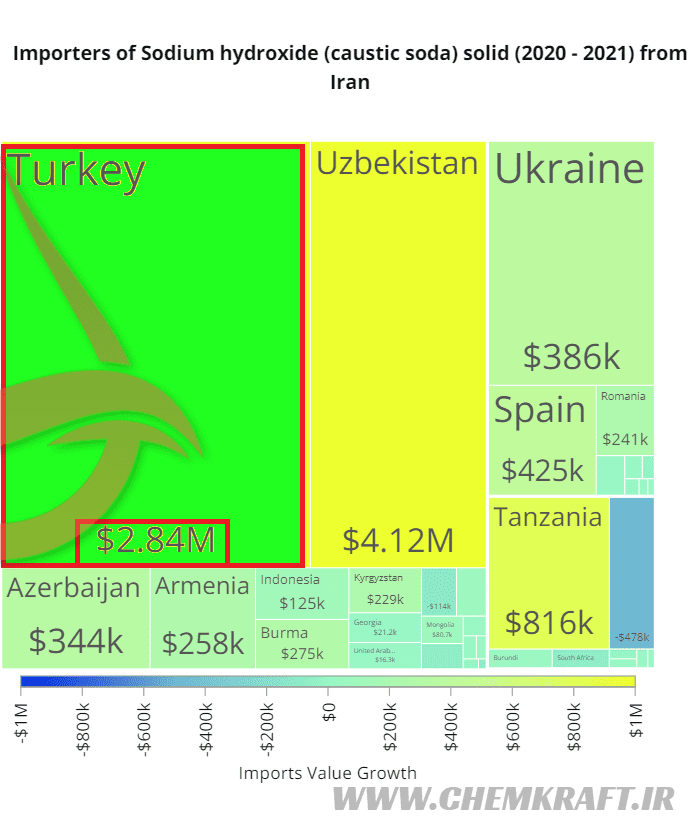Turkey is one of the largest importers of caustic soda, commonly known as sodium hydroxide, in the world. It plays a crucial role in Turkey’s various industries, including the manufacturing sector, textile industry, and chemical production. Although Turkey imports caustic soda from several countries, its imports from Iran have gained significant attention in recent years. This essay will explore the reasons behind Turkey’s caustic soda imports from Iran, the benefits it brings to both countries, and the potential challenges that may arise in their trade relations.
Iranian Competitive Advantages
First and foremost, Iran holds a significant advantage over other countries in terms of caustic soda production due to its abundant natural resources. Iran possesses vast reserves of salt, one of the main raw materials for caustic soda production. This availability of resources allows Iran to produce caustic soda at a competitive price, making it an attractive option for importers like Turkey. Furthermore, Iran has invested heavily in its caustic soda production facilities, ensuring a consistent supply of high-quality product to meet Turkey’s demanding requirements.
Turkey’s importation of caustic soda from Iran also brings several benefits to both countries. For Turkey, the imports provide a reliable source of caustic soda, ensuring the smooth functioning of its industries. Moreover, importing from Iran allows Turkey to diversify its supply chain, reducing its dependence on other countries for this critical raw material. On the other hand, these imports serve as a lucrative trade opportunity for Iran, boosting its export revenues and supporting its economy. Caustic soda exports to Turkey have become a vital source of income for Iran, particularly since the imposition of international sanctions on its other industries.
Challenges
However, the trade relationship between Turkey and Iran in caustic soda is not without its challenges. The volatile geopolitical landscape in the Middle East poses risks to the stability of this trade, especially considering the strained relations between Turkey and some of Iran’s regional rivals. Any escalation of conflicts or political tensions in the region could disrupt the flow of caustic soda, impacting Turkey’s industries and Iran’s export revenues. Additionally, the global economic landscape can also affect this trade, with fluctuations in international prices and demand potentially impacting the profitability of both countries.
Conclusion
Turkey’s caustic soda imports from Iran are driven by factors such as Iran’s abundant natural resources, competitive production capabilities, and the benefits it brings to both countries. Turkey’s diverse industries benefit from a reliable supply of this critical raw material, while Iran gains export revenues and economic stability. However, challenges such as geopolitical tensions and economic fluctuations could impact this trade relationship in the future. It is crucial for both countries to maintain stable and mutually beneficial trade policies to ensure the smooth flow of caustic soda and the continued growth of their industries.









